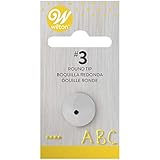All Categories
*Price and Stocks may change without prior notice
*Packaging of actual item may differ from photo shown
- Electrical items MAY be 110 volts.
- 7 Day Return Policy
- All products are genuine and original








About Iacocca: An Autobiography
Product Description “Vintage Iacocca . . . He is fast-talking, blunt, boastful, and unabashedly patriotic. Lee Iacocca is also a genuine folk hero. . . . His career is breathtaking.”—Business Week He’s an American legend, a straight-shooting businessman who brought Chrysler back from the brink and in the process became a media celebrity, newsmaker, and a man many had urged to run for president. The son of Italian immigrants, Lee Iacocca rose spectacularly through the ranks of Ford Motor Company to become its president, only to be toppled eight years later in a power play that should have shattered him. But Lee Iacocca didn’t get mad, he got even. He led a battle for Chrysler’s survival that made his name a symbol of integrity, know-how, and guts for millions of Americans. In his classic hard-hitting style, he tells us how he changed the automobile industry in the 1960s by creating the phenomenal Mustang. He goes behind the scenes for a look at Henry Ford’s reign of intimidation and manipulation. He recounts the miraculous rebirth of Chrysler from near bankruptcy to repayment of its $1.2 billion government loan so early that Washington didn’t know how to cash the check. Review “Vintage Iacocca . . . He is fast-talking, blunt, boastful, and unabashedly patriotic. Lee Iacocca is also a genuine folk hero. . . . His career is breathtaking.” —Business Week About the Author Lee Iacocca was the president of Ford Motor Company and chairman of the Chrysler Corporation. In retirement, he devoted his time to the Iacocca Family Foundation, which raises money for diabetes research. Lee Iacocca died in 2019. Excerpt. © Reprinted by permission. All rights reserved. Chapter OneTHE FAMILY Nicola Iacocca, my father, arrived in this country in 1902 at the age of twelve--poor, alone, and scared. He used to say the only thing he was sure of when he got here was that the world was round. And that was only because another Italian boy named Christopher Columbus had preceded him by 410 years, almost to the day. As the boat sailed into New York Harbor, my father looked out and saw the Statue of Liberty, that great symbol of hope for millions of immigrants. On his second crossing, when he saw the statue again, he was a new American citizen--with only his mother, his young wife, and hope by his side. For Nicola and Antoinette, America was the land of freedom--the freedom to become anything you wanted to be, if you wanted it bad enough and were willing to work for it. This was the single lesson my father gave to his family. I hope I have done as well with my own.When I was growing up in Allentown, Pennsylvania, our family was so close it sometimes felt as if we were one person with four parts. My parents always made my sister, Delma, and me feel important and special. Nothing was too much work or too much trouble. My father might have been busy with a dozen other things, but he always had time for us. My mother went out of her way to cook the foods we loved--just to make us happy. To this day, whenever I come to visit, she still makes my two favorites--chicken soup with little veal meatballs, and ravioli stuffed with ricotta cheese. Of all the world's great Neopolitan cooks, she has to be one of the best. My father and I were very close. I loved pleasing him, and he was always terrifically proud of my accomplishments. If I won a spelling contest at school, he was on top of the world. Later in life whenever I got a promotion, I'd call my father right away and he'd rush out to tell all his friends. At Ford, each time I brought out a new car, he wanted to be the first to drive it. In 1970, when I was named president of the Ford Motor Company, I don't know which of us was more excited. Like many native Italians, my parents were very open with their feelings and their love--not only at home, but also in public. Most of my friends would never hug their fathers. I guess they were afraid of not appearing strong and independent. But I hugg



























